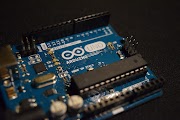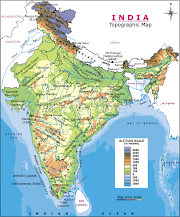What is a Model United Nations (MUN)?
 |
Ever wondered how it would like to be a representative of a country? If you did, you may know how exciting it is to have such a great responsibility.
Especially, representing a country in UN is a thing which every person might want to do once in the person's life.
Representing a country in UN means a lot. To become a representative, one needs to be aware of all the things one's country has done, is doing and will be doing in the near future on any given agenda.
Reading this, you may be thinking that going to UN as a delegate is an impossible task. And especially if you are a child, you won't be able to do this at the present time.
But don't worry, even if you can't attend a real UN conference , you can attend a MUN!
Intro to a Model United Nations (MUN)
Model United Nations, also known as Model UN or MUN, is an educational simulation of the the UN in which students can learn about diplomacy, international institutions and UN.
MUN teaches participants the skills of speaking, debating, teamwork and leadership.
It's usually taken as an extracurricular activity but in some schools or colleges, seperate class are taken for MUN.
It doesn't only improve one's skills but also improves one's a knowledge over a general topic. It helps participants broaden their mindset and teaches them to look at things from multiple perspectives.
It also teaches the participants the art of listening to others as well as making instantaneous decisions.
There are endless skills that a person can learn while attending a MUN.
Excited to learn more? Let's go deep into the working of MUN!!!
Deep into a MUNDelegates in a MUN
In a MUN, participants are allotted specific committee and a country which they have to represent.
They are given an agenda on which the participants have to prepare their speeches and present their country's stance on it.
If not a delegate, one can become a member of the IP( International Press). IP requires skills such as writing, photography, sketching and others.
The main committees are:
a) GA or the General Assembly:
The largest committee of all, this commitee has the most no of delegates. In a MUN, mainly newbies take this commitee so as to learn how a MUN functions. It passes non binding decisions.
b) Special committees:
MUN does not always comprises of the committees that are present in the UN but can also, by the will of the host, include special committees such as IMF, Madrid conference, US Senate's and others. These are usually smaller than GA.
c) Crises committees:
These types of committees are the most difficult ones. These require experienced delegates who deeply research on a particular topic. Here, delegates are required to be well aware of all the things related to the given agenda. Security Council is an apt example of this. These have the least number of participants.
Some of the things one must remember to do before one's first MUN:
1) Know the format of the MUN:
Before attending a MUN, don't forget to get clear about the type of procedure your MUN follows. It could be either of UNA-USA format, THIMUN format, UN4MUN format or of others.
These formats matter because these decide which all rules of procedures a MUN follows.
2) Read the rules of procedure:
It is always advised to newbies to be well aware of the rules of procedures. One's knowledge of these rules in the committee may help one's image to be delivered to other delegates as an experienced one.
These procedures also include 'points' which are the arguments one can raise for any type of queries or discomforts one is facing.
Eg: Point of Personal Privilege, and others.
(Note: For better explanation of these rules of procedures, you can refer to the video above)
Here's all phases in which MUN is split up:
1) General Speakers List:
MUN generally begins with a roll call where the delegates are required to speak 'present and voting' or 'present'.
This then accompanies the GSL, where the delegates discuss their opinions and their contries's stance on the given agenda.
2) Moderated Caucus: A Moderated Caucus follows the GSL and here, a subtopic is selected to ensure better quality of debate and solutions to the problems on the given agenda. 3) Un-moderated Caucus: Unmods are used to lobby with other delegates to form blocs and write working papers. It can also be used to discuss the topics for the next Moderated Caucus. 4) Voting: This is the last portion of the committee. It is invoked by a motion. It is done when a resolution had to be passed. Other than these, one has to do a good research on the given agenda. Here's some tips for a good research: a) Stay updated with the things the MUN host shares online. b) Read the background guide carefully. c) Research on each and every important term mentioned in the background guide. d) Your main focus should be on stats. These are the stuffs which, if you speak, would lead you to the ultimate prize of the Best Delegate. e) Don't forget to research about your own country and your country's stance on the agenda. f) Write your speeches down and then try to speak without looking at it. It leaves a good impression on your Executive Board and shows that how much well versed you are on the given agenda. Hope you would have got a better understanding of MUN. Who can take part in a MUN?
MUN, which was started in the 20th century as a programme for college children has now grown into a world phenomena with children of each and every age group taking a part in it.
MUN is mainly for college and school children who want themselves to experience the diplomatic environment like that of UN.
MUN can be organised by any institution which is willing to do so.
Hence, its rules are not fixed but these depend upon the institution which is organising it.
What are the best resources for MUN on the internet?
By now, you must have been able to figure out what a MUN actually is.
Here are some of the best resources for MUN present on the internet:
1) BestDelegate: This is one of the best site found on the internet which could provide you with lots of important info about MUNs.
2) UN official site: The official UN site is the most reliable source of information. No delegate could rise against your statement if you have a proof that you have it from the official UN site.
3) Reuters: Another reliable source is Reuters. MUNs generally consider information from Reuters as reliable, unbiased and true. Use this to research about your agenda.
So these were some of the best resources for MUN on the internet.
Best of luck for your next MUN!
Thanks for reading!
If you have any query regarding MUN, feel free to ask.
Hail Diplomacy!!!
|








0 Comments